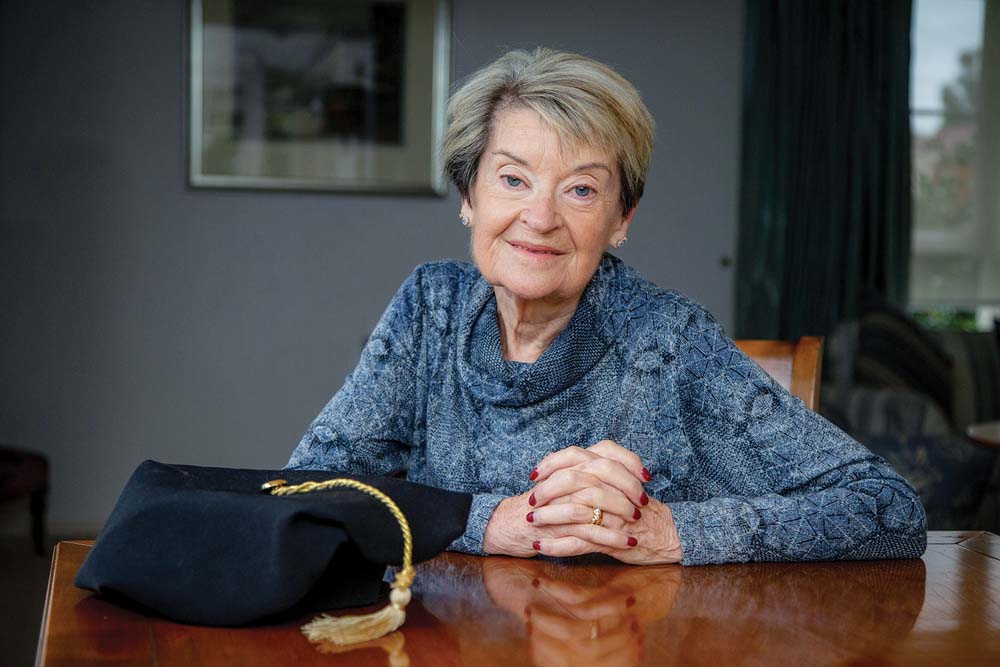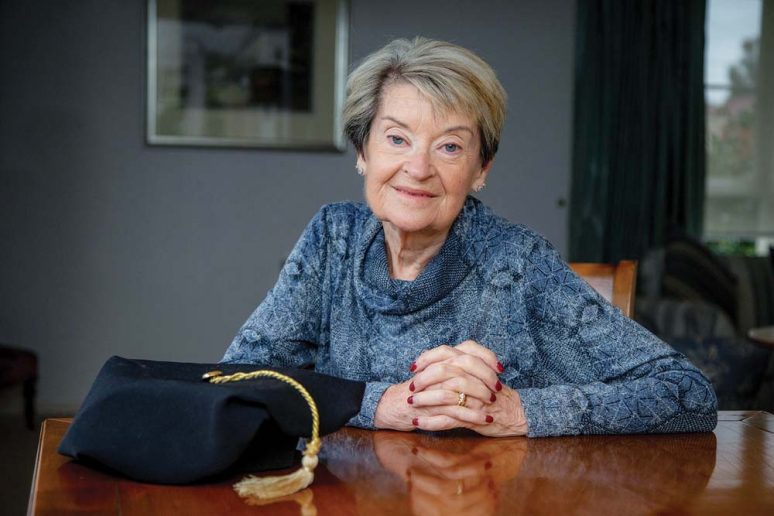
A MT ELIZA woman who had to leave school when she was 14 is now, aged 75, about to graduate from Deakin University with a PhD (Psychology).
Ann Brown’s school in England wanted her to continue with her education but her parents could not afford it. They also believed that an education was “wasted on a female”.
So, it was off to work for the bright youngster who says she enjoyed office work and went on, at 18, to become personal assistant to the editor of the Sunday Times newspaper in London.
“Choosing office work stood me in good stead as I was able to move in and out of the workforce,” Ms Brown said.
With husband Allan she migrated to Australia when she was in her early 30s with two children aged 11 and nine.
Still “hankering after study” she began a course at the Open University following her retirement in her 60s and then studied at Monash and later Deakin universities, gaining her BA (Hons) and MA before beginning her doctorate.
Overcoming several personal obstacles made her studies “touch and go”. Her only brother died suddenly, and Ms Brown had to return urgently to the UK to settle her elderly mother’s affairs after she died two years ago. The family then had to contend with a fire while living in Beaumaris and find temporary accommodation.
She also had to overcome health issues after fracturing three vertebrae.
Ms Brown revelled in her chosen field: the effect advertising has on women of all ages – particularly on their self-image.
“I began to notice that women were being targeted in advertising with the underlying message that they should have no grey hair and no wrinkles,” she said.
After examining 720 advertisements created between 1960 and 2010 she saw how they had sought to gloss over the natural effects of ageing. She interviewed scores of women aged 30-75 to gauge how the messages had impacted their lives.
“We are wonderful women with so much knowledge and experience, yet the ads are not about who we are but what we look like,” she said.
“Most women being affected [by the anti-ageing message] are in their 60s but I also notice that some as young as 30 are having Botox injections to improve their self-image.”
And it’s not only women who are being subtly influenced. “The ads also target young boys who get the message that they have to look strong,” she said.
“I did my PhD mainly on my own but drew inspiration from my mentor, Dr Tess Knight, of Deakin University, who pushed me on when I felt like giving in.”
Now school’s out for the active student who is content to say she is “proud of my achievement”.



